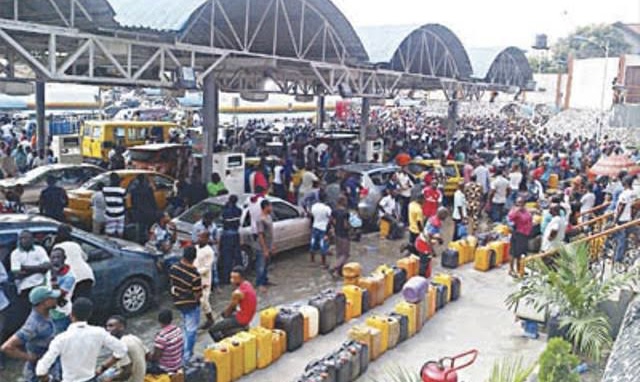Osita Chidoka, the former minister of aviation, has drawn attention to the discrepancy between the price of fuel and the minimum wage in Nigeria. Chidoka talked about his own experience, spending ₦100,000—₦30,000 more than the ₦70,000 minimum wage in Nigeria—on fuel for his Lexus 460 vehicle.
Concerns over low-income earners’ capacity to buy basic requirements are raised by this harsh reality. When working eight hours a day, twenty days a month, a minimum wage earner in Nigeria makes around ₦437.5 per hour. This means that 2.6 hours of labor are needed to pay for a single liter of gasoline, which costs ₦1,140.
Those who make the minimum wage in South Africa and Egypt, however, do better. With a minimum wage of ₦202,400 (₦1,265 per hour) per month and petrol prices of ₦443 per litre, it only takes 21 minutes of labor to purchase a liter in Egypt. Fuel costs ₦2,480 per litre in South Africa, where the minimum salary is ₦395,824 (₦2,320 per hour). Buying a litre takes an hour and forty-four minutes.
The analysis of Chidoka emphasizes the necessity of reevaluating Nigeria’s production and economic growth plans. “Fuel prices in Nigeria may not be high by global standards, but it appears incomes are too low to sustain meaningful consumption,” he said.
The difficulty low-income Nigerians experience in making ends meet in the face of stagnating earnings and rising fuel prices are highlighted by this difference. As the country navigates its economic landscape, policymakers must prioritize strategies to boost earnings and reduce the burden on minimum wage earners.
